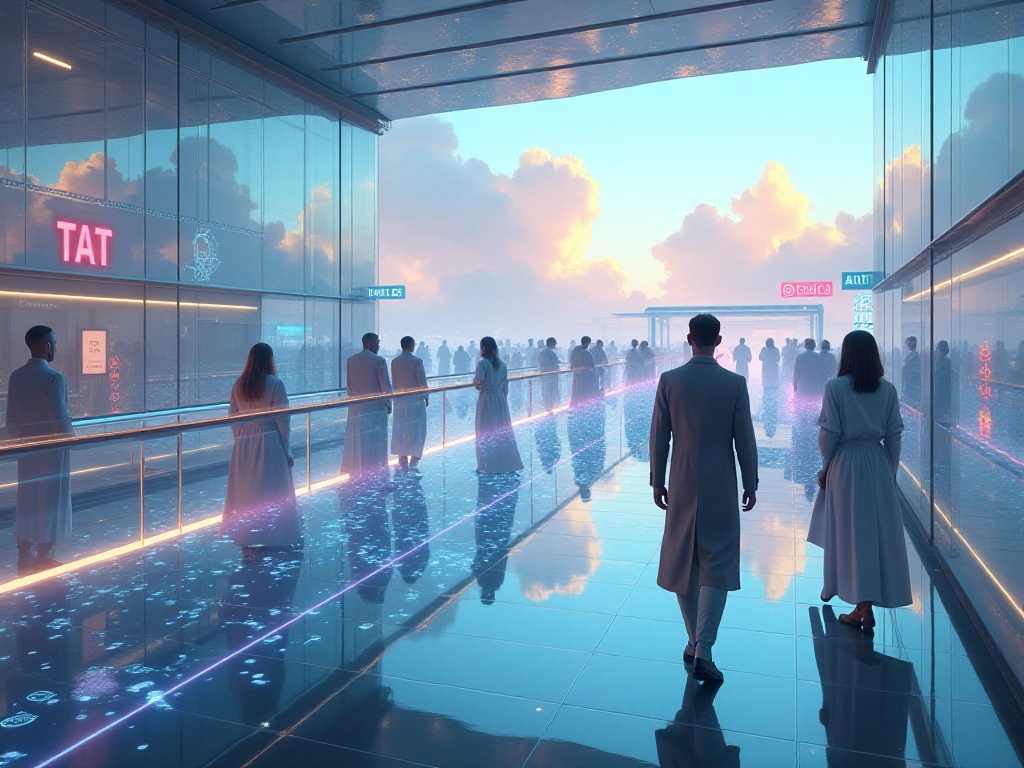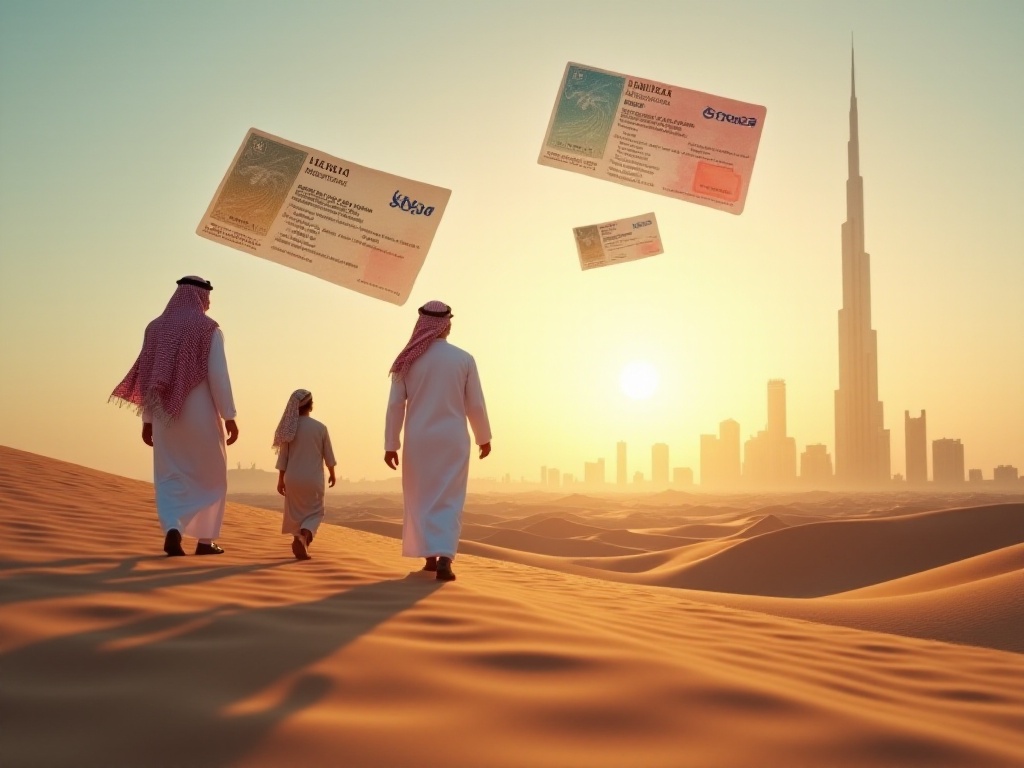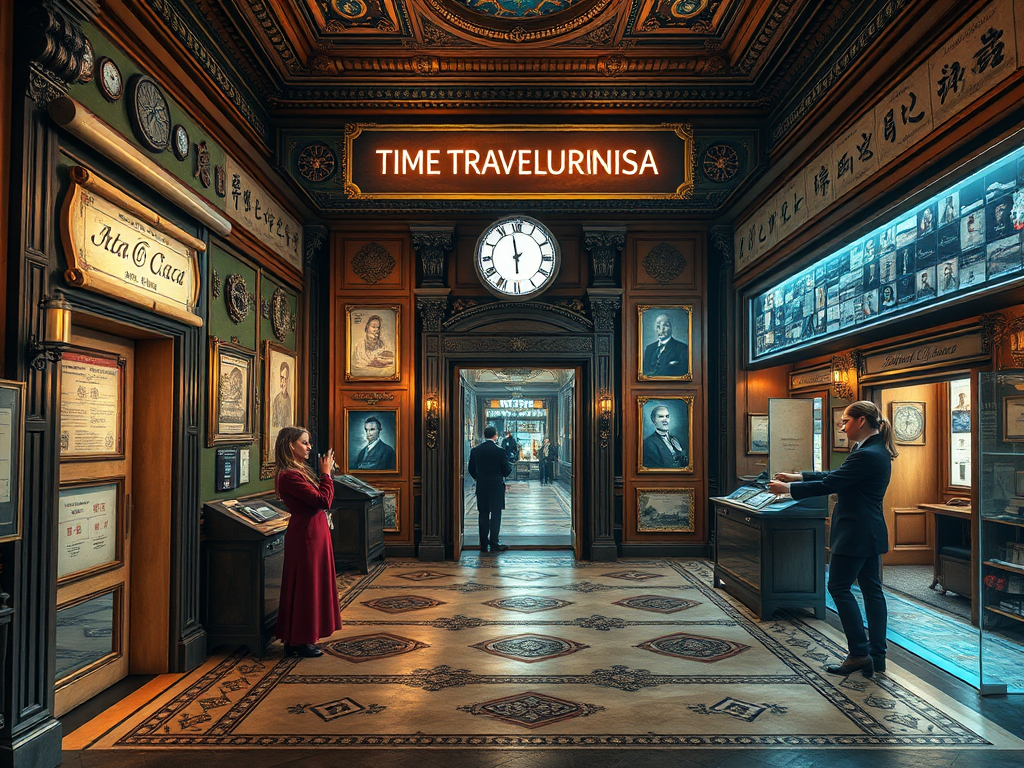Opening Chat
As someone who has worked as an embassy translator for 5 years, I've seen too many cases where people wasted time and money due to incomplete understanding of visas. Every day I meet all kinds of applicants - some well-prepared, some underprepared, and some who come for interviews without even basic materials. As someone with firsthand experience, I deeply understand that visas are an unavoidable hurdle for everyone wanting to go abroad.
Sometimes it really hurts to see applicants leave disappointed. Especially those cases who prepared for a long time, put in a lot of effort, but got rejected due to small details. Today I'll share my years of accumulated experience and lessons in the most down-to-earth way, hoping to help more people successfully obtain their visas.
Visa Decoded
What exactly is a visa? Simply put, it's a "pass" given by a country. It's like getting an electronic or paper invitation when you want to visit someone's home. Without it, you can't even enter their door.
During my time working at the embassy, I often encountered misunderstandings about visa concepts. I remember once, a young entrepreneur was preparing to attend an important investment meeting in Silicon Valley. He firmly believed having a passport was enough, thinking they would make an exception since he was going for business. He ended up not being allowed to board at the airport, losing his ticket money and missing a potentially life-changing opportunity. That was a profound lesson.
Another time, a college student thought getting a visa was just about paying money at the embassy, but hadn't even prepared basic bank statements. These cases show many people's understanding of visas remains very superficial. Actually, a visa isn't just a pass - it's a country's recognition of your personal qualifications.
Visa Appearance
Currently, visas come in two "styles": traditional physical visas and trendy electronic visas. Physical visas are those colorful stickers in your passport, while electronic visas are printable PDF files.
Speaking of visa appearances, it's an interesting topic. While working at the embassy, I noticed many young people especially like collecting visa stickers from different countries, treating their passports like travel diaries. Some visas are designed particularly beautifully - like New Zealand's visa with fern patterns symbolizing local culture; Japan's visa uses cherry blossom elements, full of poetry; while American visas are more formal, but their eagle emblem design is particularly imposing.
However, more and more countries are starting to implement electronic visas now. While this reduces some collecting fun, it's indeed much more convenient. With electronic visas, you don't have to worry about sticking them in wrong positions or damage. Plus, the approval process is usually faster, with some countries even completing reviews within 24 hours.

Visa Types

Tourist Visa
Tourist visas are the most common, usually giving you 3 months for travel. But note, never think about working on a tourist visa - that's a major taboo. I've seen several cases of people being deported for working illegally on tourist visas.
I remember once, a fresh graduate went "touring" in a certain country with a tourist visa, but actually planned to look for work there. Airport customs found job-seeking chat records on his phone, resulting in immediate deportation and a record that would affect all future visa applications. So I urge everyone, use the appropriate visa for your purpose, don't try to take chances.
Tourist visa applications are relatively simple, mainly looking at your financial ability and whether your itinerary is reasonable. I suggest preparing detailed travel plans when applying, including hotel bookings, flight tickets, and attraction tickets. These details can increase your chances of visa approval.
Here's a small tip: pay attention to the difference between visa validity and duration of stay. For example, a one-year multiple-entry visa might limit each stay to 30 days - you must understand this distinction. I've seen cases where people were fined for overstaying because they didn't notice this difference.
Transit Visa
Transit visas are like a "transfer ticket," valid from 24 hours to 2 weeks. For example, if you're flying from Beijing to London with a layover in Moscow exceeding 24 hours, you'll need a Russian transit visa.
Transit visas may seem simple but have many considerations. First, confirm whether your transfer time actually requires a transit visa. Some countries don't require visas for transfers within airports, but if you want to leave the airport, you definitely need a transit visa.
I encountered an interesting case where a traveler chose a flight with a long layover to save money. They thought they could just stay in the airport, but discovered the airport closes at night and they needed to find hotel accommodation. But without a transit visa, they couldn't leave the airport and had to spend the night on airport chairs. So, it's important to consider all scenarios before traveling.

Medical Visa
This is specifically for people seeking medical treatment abroad. However, applying requires lots of medical documents - I once helped a cancer patient apply for a medical visa, and just preparing materials took two full weeks.
Medical visa applications are the most heart-wrenching, as each applicant carries hopes for life. I remember that cancer patient, a young mother who chose to try the latest treatment abroad to leave hope for her child. The preparation process was tough, requiring detailed medical records, treatment plans, hospital invitation letters, proof of medical expenses, etc. Seeing her happiness when she got the visa was very moving.
When applying for a medical visa, proving sufficient financial ability to pay medical expenses is most important. Foreign medical costs are usually very high, so bank statements and insurance proof must be thoroughly prepared. Also, for serious illnesses, I recommend family members apply for caregiver visas so someone can provide care during treatment abroad.
Application Strategy
Online Processing
Many countries now have electronic visa systems that can be completed from home. But note that some systems are very particular about browsers - I recommend using Chrome for best compatibility.
Speaking of online processing, I really need to warn about some common pitfalls. First is photo requirements - many people just upload casual phone photos, only to have them rejected for wrong backgrounds or expressions. I suggest getting professional visa photos taken at a photo studio.
Also pay special attention to accuracy when filling forms. I've seen people have to reapply because they entered one wrong digit in their birth date. Take time to carefully verify everything - better to spend extra time than make mistakes.
System crashes are also a common issue. When deadlines approach and many people apply simultaneously, systems often crash. I suggest operating during less busy times like early morning or evening. If you encounter system issues, take screenshots immediately for potential explanations later.

Interview Strategy
If you need an embassy interview, remember to wear business attire and bring complete materials. Working at the embassy, I often saw people asked to reschedule because they dressed too casually. Business attire doesn't need to be too formal, but should convey reliability.
Interviews make many people nervous, but there's no need to be too anxious. Visa officers mainly want to confirm if your travel purpose is genuine, if you have sufficient funds, and if you intend to return on schedule. If your materials are well-prepared and you answer questions honestly, approval chances are quite high.
I suggest preparing for possible questions before interviews. Like why you're visiting this country, how long you'll stay, where funds are coming from, plans after returning, etc. Answers should be concise - don't include irrelevant details. I've seen applicants get too nervous, give unrelated answers, and leave bad impressions on visa officers.
Experience Sharing
Speaking of this, I recall an interesting case from late 2024. A student applying for a certain country's visa was rejected because they had posted lots of content about "living paycheck to paycheck" and "depending on parents" on social media, making the visa officer doubt their financial capability. So nowadays, visa applications really require attention to all aspects.
This case actually reflects an important trend - visa screening is becoming more comprehensive and information-based. Today's visa officers not only look at your submitted materials but also check your social media accounts to understand your lifestyle and spending habits. So be mindful of your online behavior in daily life and avoid posting potentially misleading content.
I also remember a successful case of a freelancer. When applying, besides regular materials, they prepared their studio website, client reviews, project contracts, etc., comprehensively demonstrating their work ability and financial strength. They successfully got their visa, showing that even non-traditional occupations can obtain visas with thorough preparation.

Concluding Thoughts
As globalization deepens, visa policies keep changing. Do you think we'll eventually have a "world passport," allowing us to freely move between countries like taking a bus?
I often think about this question. While a "world passport" seems distant now, visa reciprocity between countries is indeed increasing. For example, the promotion of electronic visas and increase in visa-free countries are making cross-border travel more convenient.
As someone with experience, I suggest taking every detail seriously when preparing visa materials. After all, getting a visa is like taking an exam - only thorough preparation leads to easy passage. I hope my sharing helps everyone avoid some detours and achieve their dreams of going abroad sooner.
Remember, applying for a visa isn't scary - the key is maintaining a positive attitude. Everyone who successfully gets a visa earns it through careful preparation. I believe if everyone follows the right approach, they'll achieve their desired results. Let's look forward to a more open, inclusive future world where cross-border exchange becomes more convenient and beautiful.







